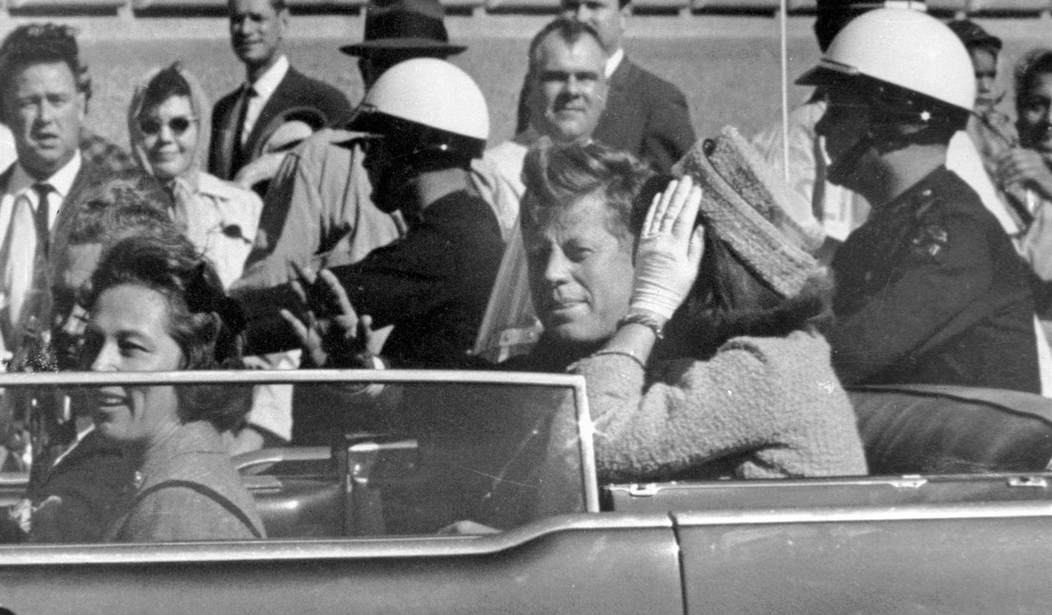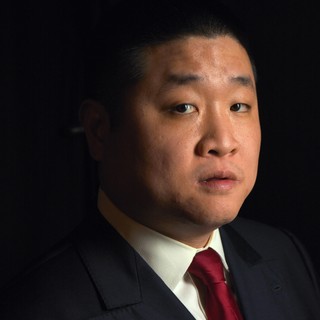President Donald Trump's declassification of the assassination files on John F. Kennedy made major headlines recently, but many questions still remain.
One of the remaining unsolved mysteries connected to JFK's assassination is the strange death of famed investigative journalist Dorothy Kilgallen on Nov. 8, 1965. According to the official report, she died of an overdose of drugs and alcohol.
I recently spoke with former defense attorney Mark Shaw, author of "The Reporter Who Knew Too Much." His book investigates the mysterious death of Kilgallen, the only reporter to interview Jack Ruby, the mafia-connected nightclub owner who shot Lee Harvey Oswald dead, two days after he was accused of killing Kennedy.
I also met with his spokesman, Ian Trottier, who is working on a separate project on former CIA Director John Brennan, whom he accuses of committing treason against the United States.
Trottier spoke last week with Rep. Anna Paulina Luna (R-Fla.), the co-chair of the task force on the death of JFK. He has asked Congress to allow Shaw to testify regarding Kilgallen's death in connection with JFK, after Oliver Stone's recent appearance on the Hill.
Kilgallen, who was once described by the New York Post in 1960 as "the most powerful female voice in America," was also the wife of comedic actor Richard Kollmar.
She was known to the American public as a panelist on CBS's "What's My Line" and was a nationally syndicated columnist in about 200 newspapers. Her weekday radio show had a million regular listeners and lasted until her untimely death.
Much of her work involved covering headline criminal trials like the Dr. Sam Sheppard murder case, which later inspired the TV series and the movie "The Fugitive."
People said that when Kilgallen would report on a trial, she would cover the story as if she were a prosecutor.
However, the last murder case that she would cover was the assassination of her good friend, President Kennedy, which may have led to her untimely demise.
"Now people will say they were close friends, and she was. He had been a regular guest at her home in Manhattan, and they would see each other at watering holes there in SoHo," Shaw told PJ Media.
According to Shaw, Kennedy was close enough to Kilgallen to the point where he invited her and her son Terry, who was in 3rd grade at the time, to the White House, so when she found out that JFK had been killed, it caused her a lot of grief.
For the next eleven months after Kennedy was shot in Dallas, Kilgallen dug into the story with passion, becoming one of the major voices questioning the official line from Washington and the narrative that Lee Harvey Oswald was a lone assassin.
"When she heard that some guy named Jack Ruby had shot this Lee Harvey Oswald in cold blood, she decided she was going to fly directly to Dallas to investigate her friend JFK's death," said Shaw.
Unlike the so-called experts who investigated the JFK assassination, Kilgallen was the only one who arrived in Dallas shortly after the crime and the only one to speak with Ruby.
To this day, what exactly Ruby told Kilgallen about the shootings of JFK and Oswald remains a mystery, as unknown persons seized her papers after she died.
She also interviewed the Dallas chief of police, who told her that there was something wrong with the official line from FBI Director J. Edgar Hoover that Oswald had shot Kennedy from the Book Depository. He believed that the shots actually came from the overpass overlooking Dealey Plaza.
Kilgallen would later go on to attend every closed-door hearing of the Warren Commission, where she confronted government officials on their findings to the point that Hoover put her on a surveillance list, according to Shaw, who filed a FOIA request on the late reporter..
She would persist in expressing skepticism that Oswald acted alone in her columns and called for his file to remain open, despite attempts by the authorities to quickly bury the JFK investigation.
The path that Kilgallen took to get to the truth would, in the end, dangerously lead to a politically connected New Orleans mob boss who was long suspected of ordering a hit on Kennedy.
In my second installment, I will discuss why this mobster had a motive to murder Kilgallen and the strange disappearance of her files on the JFK assassination on the night of her death.
Help PJ Media continue to tell the truth about the Trump administration's accomplishments as we continue to usher in the Golden Era of America. Join PJ Media VIP and use promo code FIGHT to get 60% off your membership.










Join the conversation as a VIP Member